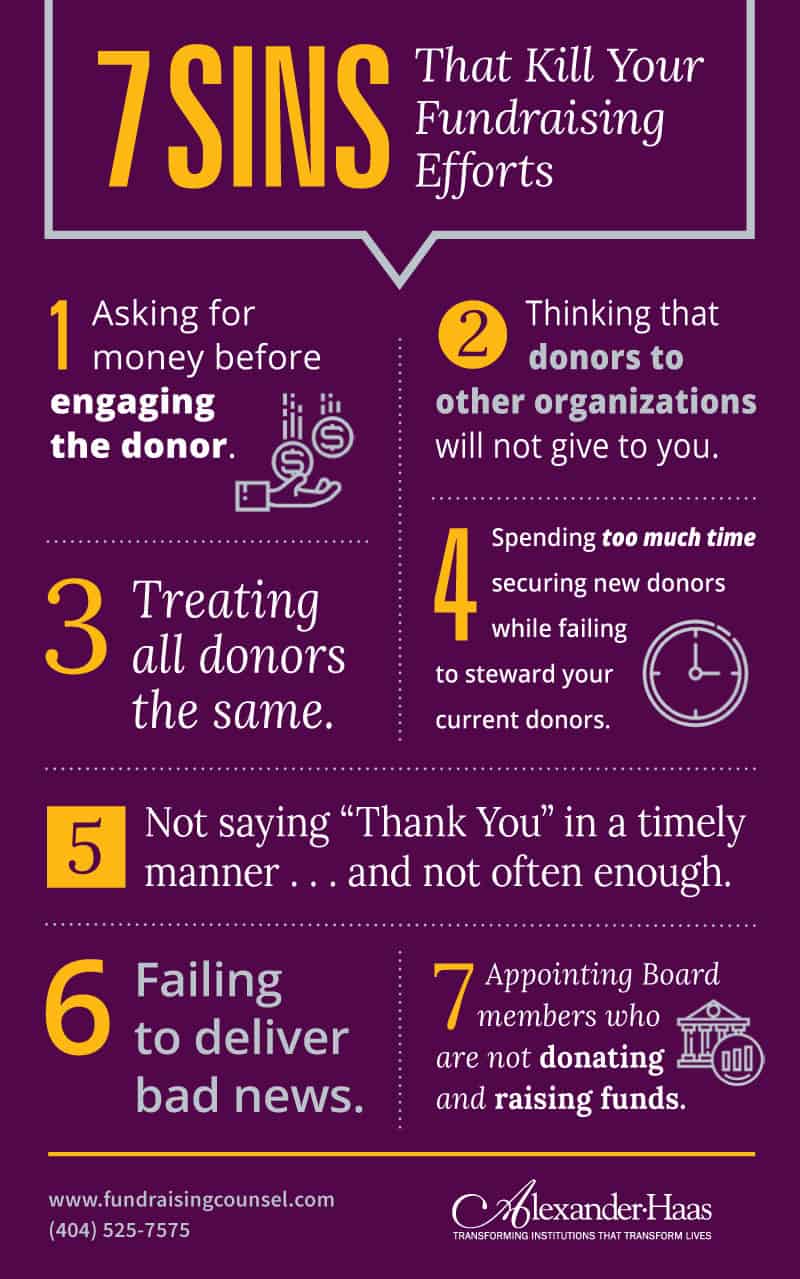7 Sins That Can Jeopardize Your Fundraiser:
- Asking for money before engaging the donor.
Engage in a sincere and meaningful conversation with your top donors before asking for anything. Remember that asking for a gift is only one step in the “development process” and it usually is not the first step. You need to “develop” the relationship first and find the shared goals of your organization and the prospective donor.
- Treating all donors the same.
You may not like it, but not all donors are the same. Small donors are perfectly comfortable responding to a snail mail or email request. Major donors require major investments of time and energy and a personal relationship and request.
- Thinking that donors to other organizations will not give to you.
People give wherever they feel they can have an impact and most donors contribute to five or more organizations. Even a donor who is supporting one of your “competitors” may have a very real interest in the area that you are serving and want to support as many organizations as they can that are having a real impact on that issue.
- Spending too much time securing new donors while failing to steward your current donors.
Your best prospect for a gift is someone who has made a gift before. Yes, you need to always be adding donors, but don’t make that harder by creating a churn of lost donors every year. Continue thanking, cultivating and stewarding your existing donors and celebrate a renewed gift just as joyfully as you would a new gift.
- Not saying “thank you” in a timely manner … and not often enough.
We used to say get the thank you letter to them before their check clears. Most transactions these days are electronic so that no longer applies. But, be quick, be sincere, and do it without asking for more money. A donor should receive a thank you within 24 hours of a gift and a major donor should get a phone call as soon as you receive the gift.
- Failing to deliver bad news.
They say good news travels fast and bad news travels faster. The nonprofit community is small — there are no secrets. Be upfront and clear with information that deals with controversial issues or mistakes or problems you are facing. Donors invest in you and want/expect to be treated as insiders and trusted advisors. Don’t let your donors hear about your issues from someone else – take control of the messaging.
- Appointing Board members who aren’t donating and raising funds.
If your board members, who are legally responsible for the organization, are not your most loyal and dependable supporters you are going to struggle with fundraising. Having a supportive board is essential for non profit success. Further, if your board members are not willing to help you raise funds – by soliciting gifts themselves or making introductions or being vocal advocates for your organization – then you probably have the wrong board members.




